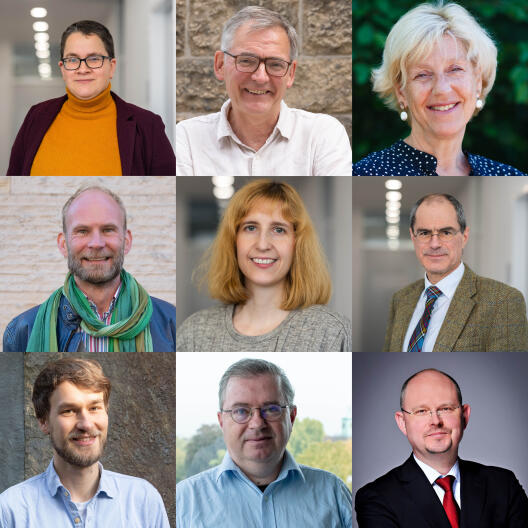BMBF Special: Voices from the Käte Hamburger Kollegs

What is special about the Käte Hamburger Kollegs, what research is conducted here and why is it important for society? This is what our funder, the Federal Ministry of Education and Research (BMBF), asks in a new special on the portal for the humanities and social sciences.
Our directors, fellows and staff have given very different answers to these questions. However, almost all of them emphasise the significance of the Kolleg as a place of free interdisciplinary exchange that leads to whole new insights. Director Ulrike Ludwig puts it this way: "Working together with the fellows on the question of which forms of legal pluralism or legal unity can be observed in very different social constellations is exciting in itself. In the joint discussions, it is also possible to ask in a new way how processes of legal standardisation were actually set in motion and what, conversely, led to the stabilisation of legal plurality." Director Peter Oestmann emphasises the special culture of debate at the Kolleg: "Colleagues from all over the world come to Münster to talk to us about their research. In doing so, we not only get to know new topics and perspectives, but above all interesting personalities. The exchange takes place at eye level, without know-it-all attitudes or competition."
On the relevance of research on legal pluralism, our Fellow Jakub Urbanik explains: “Research on legal plurality centres on the norms governing our society. The Kolleg is a place of dialogue, dispute, and argument. It is a unique space where we converse with one another and learn to comprehend these mechanisms better.” And Münster Fellow Hans Beck refers to overarching changes in the research landscape: “Drawing cutting-edge scholars at different disciplines and stages in their career to here, the Kolleg demarcates a space where academic vigor, curiosity, and inspiration grow into one. In this sense, it is a landmark in ongoing processes of reframing research in the Humanities and Social Sciences.”

